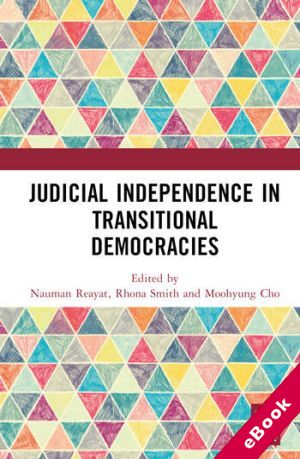We are now closed for the Christmas and New Year period, returning on Monday 5th January 2026. Orders placed during this time will be processed upon our return on 5th January.

The device(s) you use to access the eBook content must be authorized with an Adobe ID before you download the product otherwise it will fail to register correctly.
For further information see https://www.wildy.com/ebook-formats
Once the order is confirmed an automated e-mail will be sent to you to allow you to download the eBook.
All eBooks are supplied firm sale and cannot be returned. If you believe there is a fault with your eBook then contact us on ebooks@wildy.com and we will help in resolving the issue. This does not affect your statutory rights.
This book presents interdisciplinary and comparative analyses of judicial independence in transitional democracies across Asia, Latin America, Eastern Europe, the Middle East, and Africa. Although judicial empowerment and independence in transitional democracies have gained both academic and real-world prominence in recent decades, an ongoing debate persists regarding the nature, scope, and determinants of judicial independence in transitional settings. Some transitional democracies successfully develop democracy and the rule of law with the sustained growth of judicial independence, whereas others grapple with substantial challenges and move more towards authoritarianism. This book examines factors that drive de jure and de facto judicial independence in transitional democracies and evaluates their relationship. In doing so, it identifies challenges and opportunities associated with developing judicial independence in transitional democracies. At the intersection of political science and law, the work will be a valuable resource for academics, researchers, and policymakers in constitutional law, constitutional politics, and human rights law.